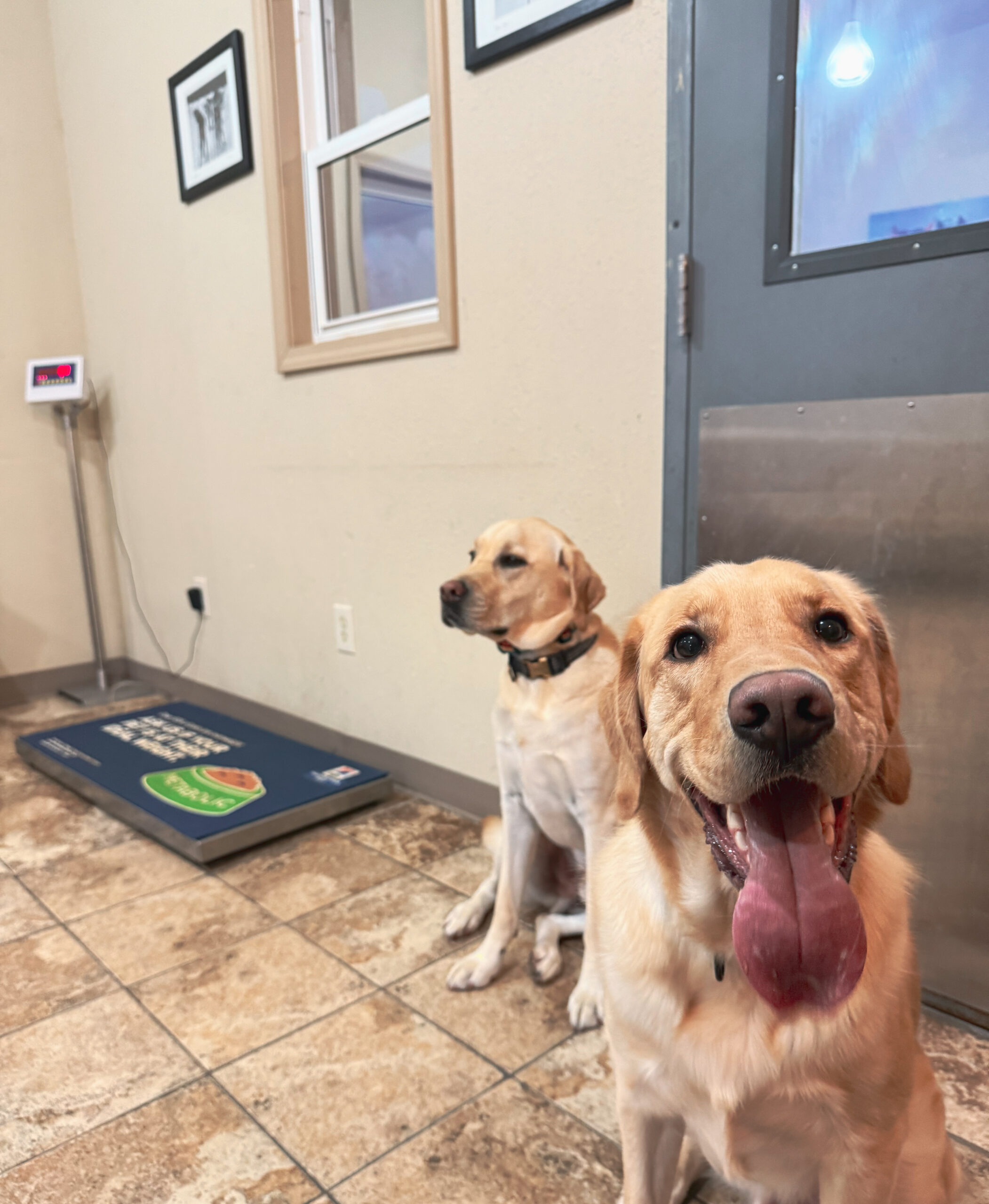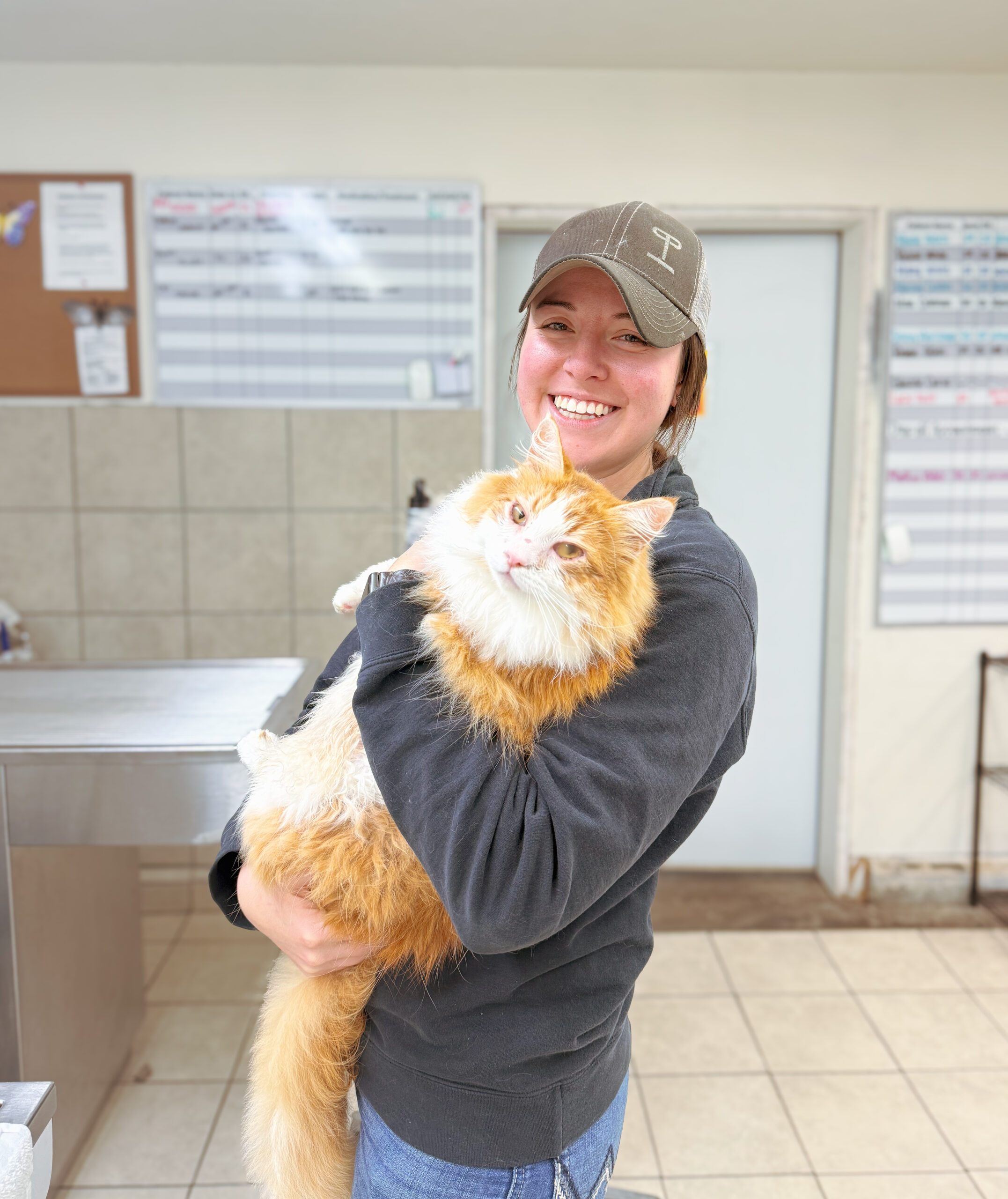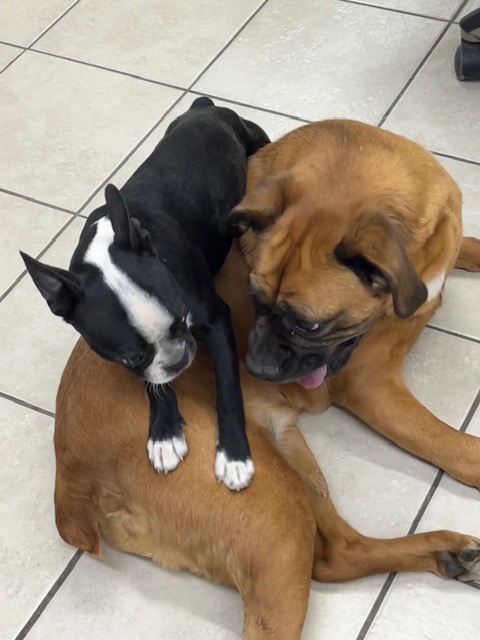Small Animal Services



Wellness Examinations
Regular check-ups are essential for your pet’s health. Comprehensive health check-up designed to assess your pet’s overall health and well-being.
Preventative Care
Vaccines are crucial in preventing various infectious diseases. We can provide a schedule based on your pet’s age, health status, and lifestyle. Frequently de-worming your pet can prevent internal parasites. We do offer flea/tick prevention for the warmer months.
Dental Care
Dental Care is an essential part of your pet’s health. Pets’ can suffer from dental issues such as plaque build-up, gingivitis, and periodontal disease. Regular dental cleanings help prevent these problems and keep their teeth and gums healthy.
In-House Laboratory
Our in house laboratory allows for quick and accurate diagnostic testing which includes blood testing, urinalysis, fecal examinations, and cytology.
Digital Radiology
Radiographs are an essential diagnostic tool that helps in visualizing internal structures. Most commonly used for identifying fractures, tumors, evaluating heart and lung conditions and assessing abdominal organs.
Microchipping
Microchipping is a permanent way to identify your pet. It is a small electronic device implanted under you pets’ skin, containing a unique identification number that links to your contact information.
Ultrasound
Pet ultrasound uses high frequency sound waves to create images of your pet’s organs and tissues. This procedure is useful for examining soft tissues such as the heart, liver, kidneys, and bladder which provides a more detailed view that can help identify issues such as tumors, cysts, fluid accumulation and other abnormalities.
406 Pet Crematory
The loss of a pet can be one of the most heart-wrenching experiences. Pets are family members who provide unconditional love and companionship. The grief that follows their passing can be profound and honoring your pet’s memory can be an important step in the healing process. Our clinic works with 406 Pet Crematory out of Helena, MT. 406 Pet Crematory provides a range of cremation options, allowing you to choose the best fit for your needs.

Surgical Procedures
Our facility is equipped with the modern technology and resources to provide a wide range of surgical procedures safely and effectively. Our team is here to support and provide guidance throughout the surgical process and recovery. If you have any questions or need more information, please don’t hesitate to contact us.
Spay/Neuter Procedures
Our spay and neutering procedures are safe and effective surgeries that remove reproductive organs. These procedures help reduce the risk of certain health issues and help control pet population. There are many benefits when it comes to spaying/neutering your pet. Your pet must be at least 4 months of age before spaying or neutering can take place.
Laparoscopic Spay
Our laparoscopic ovariectomy, also known as laparoscopic spaying. This is a minimally invasive surgical technique used to remove the ovaries in female animals. Small incisions are made in the abdomen to allow the surgeon to use a camera to find the ovaries to be able to accurately and effectively remove them. This method is less invasive than the traditional spay and typically results in less pain and a quicker recovery. For more information, click on the video below to learn more.
At our clinic, the laparoscopic equipment is also used for performing Cryptorchid Neuters on male dogs, therefore it is less invasive and a quicker procedure. Cryptorchid simply means that your male dog has retained testicles and therefore cannot just be removed from the scrotum.
Mass Removal
This procedure involves the excision of a tumor or mass from an animals body. When it comes to the removal of a mass, procedures can vary depending on the size and location. After removal, owners do have the option to have the mass sent off to the lab to receive a histopathology report. Sending the mass off provides us with a detailed explanation of what it is and if they recommend any further treatment.
Foreign Body Removal
This procedure involves the surgical removal of a foreign object that has been ingested or lodged within the gastrointestinal tract. Prior to surgery, we may take a radiograph to find the obstruction and do a barium study
Splenectomy
This procedure involves the surgical removal of the spleen. Typically the spleen will be removed due to tumors, trauma, or other diseases affecting the organ. The spleen plays a role in the immune system.
Laryngeal Tie Back Surgery
Also known as arytenoid lateralization, this surgery is performed to treat laryngeal paralysis in dogs. It involves suturing one of the arytenoid cartilages to allow for better airflow during breathing, effectively preventing airway obstruction.
Gastropexy & GDV (Gastric Dilation - Volvulus)
Gastropexy is a surgical procedure that attaches the stomach to the abdominal wall to prevent it from twisting. This is commonly seen in larger breed dogs that have deep chests. Immediate surgery is critical to alleviate the distended stomach and prevent shock. To learn more about GDV and gastropexy, please watch the video below.
